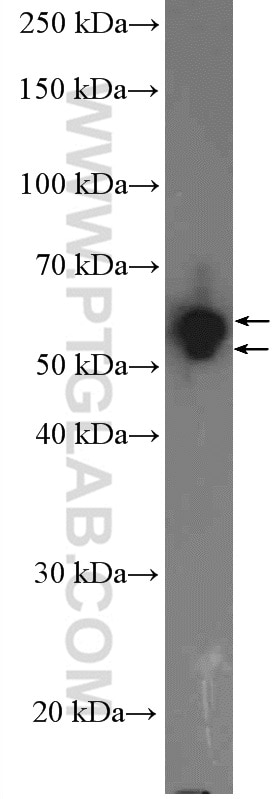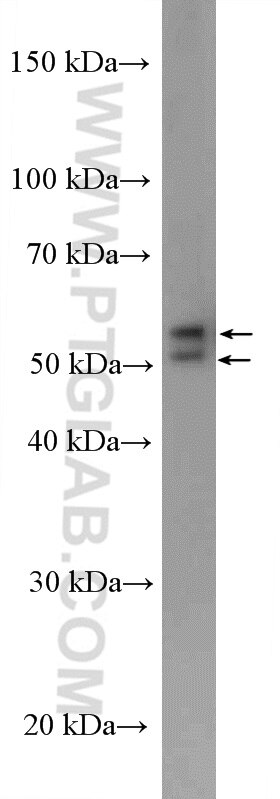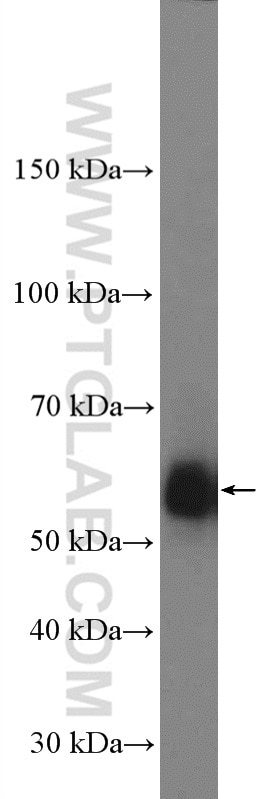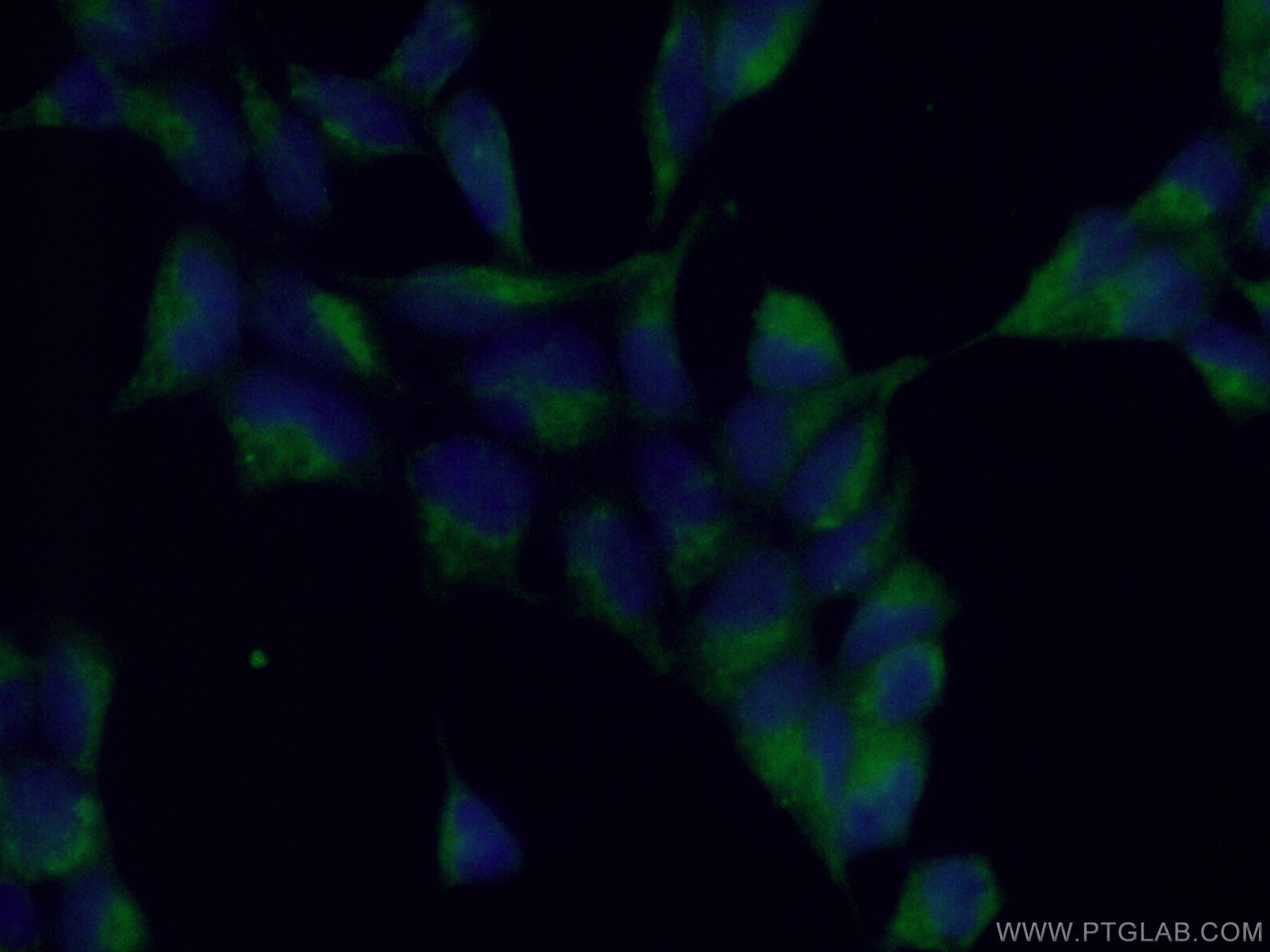PCTAIRE3 Polyclonal antibody
PCTAIRE3 Polyclonal Antibody for IF, WB, ELISA
Host / Isotype
Rabbit / IgG
Reactivity
human, mouse
Applications
WB, IF, ELISA
Conjugate
Unconjugated
Cat no : 12207-1-AP
Synonyms
Validation Data Gallery
Tested Applications
| Positive WB detected in | HEK-293 cells, mouse brain tissue |
| Positive IF detected in | HEK-293 cells |
Recommended dilution
| Application | Dilution |
|---|---|
| Western Blot (WB) | WB : 1:500-1:2000 |
| Immunofluorescence (IF) | IF : 1:50-1:500 |
| It is recommended that this reagent should be titrated in each testing system to obtain optimal results. | |
| Sample-dependent, Check data in validation data gallery. | |
Product Information
12207-1-AP targets PCTAIRE3 in WB, IF, ELISA applications and shows reactivity with human, mouse samples.
| Tested Reactivity | human, mouse |
| Host / Isotype | Rabbit / IgG |
| Class | Polyclonal |
| Type | Antibody |
| Immunogen | PCTAIRE3 fusion protein Ag2851 |
| Full Name | PCTAIRE protein kinase 3 |
| Calculated Molecular Weight | 472 aa, 54 kDa |
| Observed Molecular Weight | 54 kDa, 58 kDa |
| GenBank Accession Number | BC011526 |
| Gene Symbol | PCTK3 |
| Gene ID (NCBI) | 5129 |
| RRID | AB_906375 |
| Conjugate | Unconjugated |
| Form | Liquid |
| Purification Method | Antigen affinity purification |
| Storage Buffer | PBS with 0.02% sodium azide and 50% glycerol pH 7.3. |
| Storage Conditions | Store at -20°C. Stable for one year after shipment. Aliquoting is unnecessary for -20oC storage. 20ul sizes contain 0.1% BSA. |
Background Information
PCTAIRE3 (PCTAIRE-motif protein kinase 3), also named CDK18 or PCTK3, is a member of PCTAIRE subfamily. The PCTAIRE kinase (PCTK) subfamily of CDKs includes three members, PCTK1/CDK16, PCTK2/CDK17, and PCTK3/CDK18, which contain the PCTAIRE sequence instead of the PSTAIRE sequence (PMID: 24831015). PCTK3 has three isoforms with the molecular mass of 54-58kD.
Protocols
| Product Specific Protocols | |
|---|---|
| WB protocol for PCTAIRE3 antibody 12207-1-AP | Download protocol |
| IF protocol for PCTAIRE3 antibody 12207-1-AP | Download protocol |
| Standard Protocols | |
|---|---|
| Click here to view our Standard Protocols |





